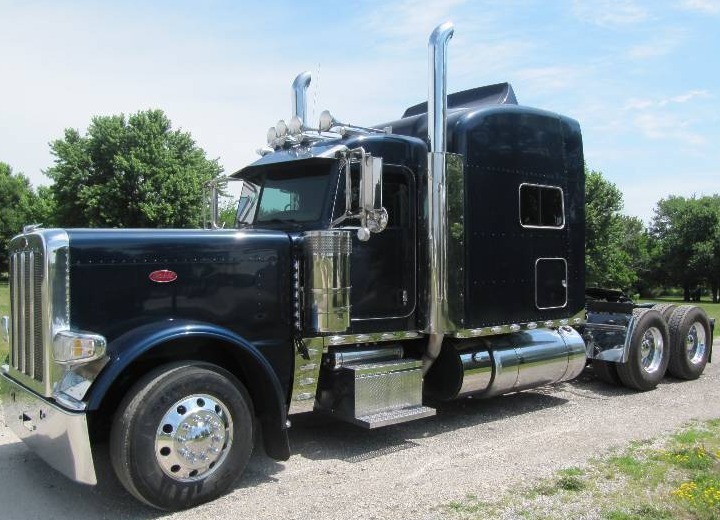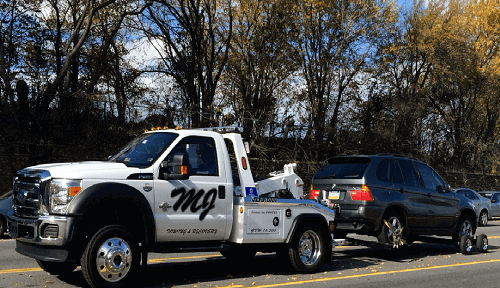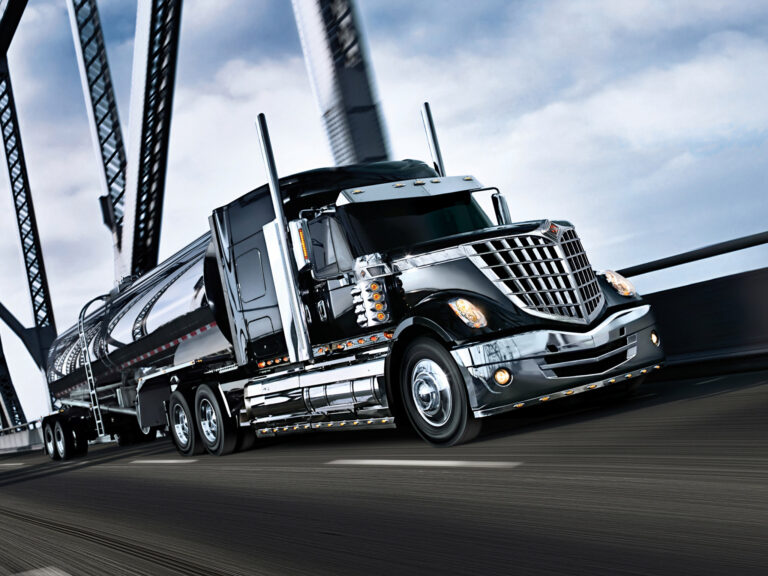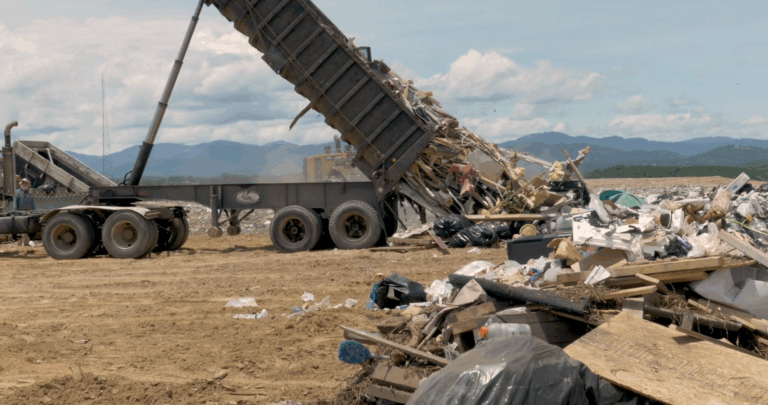Bank Repo Semi Trucks: Unlocking Opportunities in the Commercial Vehicle Market
Bank Repo Semi Trucks: Unlocking Opportunities in the Commercial Vehicle Market cars.truckstrend.com
In the vast and ever-moving world of commercial transportation, opportunities often arise from unexpected corners. One such corner, often shrouded in a mix of skepticism and allure, is the market for "Bank Repo Semi Trucks." These are commercial vehicles, specifically tractor-trailer units, that have been repossessed by financial institutions due to loan defaults by their previous owners. Far from being merely distressed assets, bank repo semi trucks represent a unique segment of the used vehicle market, offering significant potential for savvy buyers while posing specific challenges that demand careful consideration. Understanding this niche is crucial for anyone looking to enter or expand their trucking operation with a potentially substantial cost advantage.
Understanding Bank Repossessions in the Trucking Industry
Bank Repo Semi Trucks: Unlocking Opportunities in the Commercial Vehicle Market
The journey of a semi-truck from a thriving business asset to a bank repossession is often a complex tale of economic pressures and financial distress. The trucking industry, while vital, is highly susceptible to fuel price volatility, freight rate fluctuations, regulatory changes, and economic downturns. When a trucking company or independent owner-operator faces sustained periods of low profitability, high operating costs, or poor financial management, they may struggle to meet their loan obligations.
- Why Trucks Get Repossessed: Common triggers include business failures, unexpected major repair costs, insufficient freight volume, rising interest rates, or simply a miscalculation of operational expenses versus revenue. When loan payments are consistently missed, the lending institution (bank, credit union, or specialized finance company) exercises its right to reclaim the collateral – the semi-truck itself.
- The Bank’s Perspective: For banks, repossession is a last resort. Their primary goal is to recover as much of the outstanding loan balance as possible and mitigate losses. They are not in the business of selling trucks; they are in the business of lending money. Therefore, once a truck is repossessed, the bank typically seeks to remarket it quickly and efficiently, often at a discounted price, to minimize holding costs and accelerate recovery. This urgency is precisely what creates the buying opportunity.
- The Repossession Process: It usually begins with a series of missed payments, followed by formal notices from the lender. If no resolution is reached, a repossession agent is dispatched to seize the vehicle. Once recovered, the truck is typically moved to a secure lot, assessed (often superficially), and prepared for sale through various channels.
The Appeal of Bank Repo Semi Trucks: Benefits for Buyers
For an astute buyer, bank repo semi trucks offer compelling advantages, primarily centered around cost and immediate availability.

- Significant Cost Savings: This is the most attractive benefit. Repo trucks are often priced considerably lower than comparable used trucks sold through traditional dealerships or private sellers. Banks prioritize quick sales over maximizing profit on individual units, leading to aggressive pricing. This can translate into savings of tens of thousands of dollars, freeing up capital for other business needs or allowing entry into the market with a lower initial investment.
- Immediate Availability: Unlike ordering a new truck, which can involve long lead times, or even waiting for a specific used model to appear, repo trucks are available for immediate purchase. They are physical assets ready to be inspected, bought, and put to work, which is crucial for businesses needing to scale up quickly or replace a downed vehicle.
- Potential for High Value: While some repo trucks might be in rough shape, many are repossessed simply because their previous owners faced financial difficulties unrelated to the truck’s mechanical condition. You might find well-maintained, relatively low-mileage units that simply fell victim to a struggling business. Identifying these gems requires diligence but can yield exceptional value.
- Variety of Options: The repo market reflects the diversity of the trucking industry. You’ll find a wide range of makes (Freightliner, Peterbilt, Kenworth, Volvo, International, Mack), models, engine types, transmission configurations, and cab styles (day cabs, sleeper cabs) – offering choices to suit various hauling needs.

Navigating the Purchase: A Step-by-Step Guide
Purchasing a bank repo semi truck requires a methodical approach and a strong understanding of the "as-is" nature of these transactions.
- Step 1: Define Your Needs and Budget: Before you even start looking, clearly outline what type of truck you need (e.g., day cab for local hauling, sleeper for long-haul), your required specifications (engine horsepower, transmission type, axle configuration), and your absolute maximum budget, including potential repair costs. Get pre-approved for financing if you plan to borrow.
- Step 2: Research and Locate Sources:
- Bank Websites: Many larger banks and specialized commercial lenders have "asset recovery" or "remarketing" sections on their websites listing repossessed vehicles.
- Online Auction Platforms: Major platforms like Ritchie Bros. Auctioneers, IronPlanet, GovPlanet, Proxibid, and Purple Wave frequently feature commercial truck auctions, often including bank repos.
- Specialized Repo Dealers: Some dealerships specialize in selling repossessed commercial equipment.
- Local Commercial Truck Dealerships: They may acquire repo units through wholesale channels.
- Step 3: Conduct Thorough Due Diligence:
- VIN Check: Obtain the Vehicle Identification Number (VIN) and run a comprehensive history report (e.g., through Carfax for commercial vehicles, NICB, or proprietary commercial vehicle history services). This can reveal past accidents, liens, title issues, and mileage discrepancies.
- Service Records: Request any available service or maintenance records from the bank or seller. While often limited for repo units, any information is valuable.
- Title Status: Verify that the title is clear and free of any liens.
- Step 4: Inspection is Paramount (The Golden Rule): This cannot be stressed enough. Never buy a repo truck sight unseen.
- Physical Inspection: Inspect every component: engine (look for leaks, signs of overheating, unusual noises), transmission (fluid levels, shifting feel), differential, frame (cracks, rust), tires (wear, mismatched), brakes, suspension, electrical system, lights, HVAC, and the cab interior. Check for signs of neglect, abuse, or hidden damage.
- Professional Mechanic: If you’re not an expert, hire a trusted, independent heavy-duty mechanic to perform a pre-purchase inspection. This investment can save you thousands in future repairs.
- Test Drive: If permitted, take the truck for a thorough test drive. Listen for unusual noises, check for proper shifting, braking, and steering.
- Step 5: Understand "As-Is, Where-Is": Almost all repo sales are conducted on an "as-is, where-is" basis, meaning there are no warranties, express or implied. Once you buy it, it’s yours, with all its flaws. Your thorough inspection is your only guarantee.
- Step 6: Financing and Payment:
- Cash Purchase: Paying cash offers the strongest negotiating position and avoids additional financing costs.
- Financing: While possible, securing a loan for an "as-is" repo truck can be more challenging. Lenders may require higher down payments, charge higher interest rates, or refuse to finance older or higher-mileage units. Get pre-approved before bidding or making an offer.
- Payment Logistics: Be prepared to make payment quickly, often within a few days of purchase, via wire transfer or cashier’s check.
- Step 7: Transportation and Logistics: Once purchased, you are responsible for picking up the truck. Arrange for temporary tags/permits and insurance before driving it off the lot. Consider having it towed if you have concerns about its roadworthiness.

Important Considerations and Potential Challenges
While the allure of a low price is strong, bank repo semi trucks come with their own set of risks that buyers must be prepared for.
- Hidden Problems and Lack of History: The biggest risk is the unknown. The previous owner might have neglected maintenance, abused the truck, or attempted quick, cheap fixes for major issues. Comprehensive service records are rare for repo units, making it difficult to assess past care.
- Cosmetic vs. Mechanical: A truck might look good on the outside but hide serious mechanical flaws, or vice-versa. Focus your inspection on the critical components that affect safety and operational reliability.
- Titling and Liens: Although banks typically provide clear titles, it’s crucial to verify that no residual liens exist. A VIN check helps, but a direct check with the state’s DMV or equivalent agency is best.
- Financing Difficulties: As mentioned, traditional lenders may be hesitant. Exploring specialized commercial vehicle lenders or equipment financing companies might yield better results, but rates could be higher.
- Limited Negotiation: In an auction setting, your bid is your negotiation. For direct bank sales, prices are often firm, though some room for negotiation might exist if the truck has been sitting for a while.
- Time Sensitivity: Good deals on repo trucks don’t last long. Be prepared to act quickly once you’ve found a suitable unit and completed your inspection.
- Post-Purchase Costs: Factor in immediate costs for fluid changes, filter replacements, tire replacements, and any necessary repairs identified during inspection. These can quickly eat into your initial savings if not anticipated.
Where to Find Bank Repo Semi Trucks
Knowing where to look is key to finding the right bank repo semi truck.
- Direct from Banks/Lenders: Check the asset recovery or remarketing departments of major commercial lenders. Many have dedicated online portals for repossessed equipment.
- Online Auction Platforms:
- Ritchie Bros. Auctioneers: One of the largest industrial auctioneers, featuring a vast inventory of heavy equipment, including semi-trucks.
- IronPlanet / GovPlanet: Specialized online auction platforms for heavy equipment and government surplus.
- Proxibid / Purple Wave: Aggregators that list auctions from various auction houses across the country.
- Specialized Repo & Used Truck Dealers: Many dealers specifically buy repo trucks in bulk from banks and then re-sell them. They might offer some level of reconditioning or even limited warranties, though prices will be higher than direct from the bank.
- Local Classifieds & Forums: Occasionally, smaller lenders or private individuals selling repossessed trucks might list them in local commercial vehicle classifieds or trucking forums.
Bank Repo Semi Truck Estimated Price Guide
Please note: The prices for bank repo semi trucks vary drastically based on make, model, year, mileage, engine type, transmission, overall condition, maintenance history, and the specific bank’s urgency to sell. The table below provides estimated ranges for illustrative purposes and highlights key factors influencing price. These are not actual current market prices and should only be used as a general guide.
| Truck Type / Make | Year Range | Condition (Estimated) | Estimated Price Range (USD) | Key Factors Influencing Price |
|---|---|---|---|---|
| Day Cab | 2010-2015 | Fair to Good | $15,000 – $35,000 | Mileage (200k-600k+), Engine Hrs, Major Repairs Needed, Tire Condition |
| (e.g., Freightliner M2, International LT) | 2016-2020 | Good to Excellent | $35,000 – $65,000 | Lower Mileage, Recent Maintenance, Emissions Compliance, Aftertreatment System |
| Sleeper Cab | 2010-2015 | Fair to Good | $20,000 – $45,000 | Mileage (400k-800k+), Engine & Transmission Health, Rust/Frame Damage, Interior Wear |
| (e.g., Peterbilt 379/389, Kenworth W900, Volvo VNL) | 2016-2020 | Good to Excellent | $45,000 – $85,000+ | Lower Mileage, Reputable Engine (Cummins, Detroit), Automated Manual Transmissions, Aerodynamic Features |
| Specialty/Heavy-Haul | 2008-2015 | Variable | $30,000 – $70,000+ | Axle Configuration (tandem, tri-axle), PTO, Wet Kit, Engine Size/Horsepower, GVWR |
| (e.g., Dump, Mixer, Crane Truck chassis) | 2016-2020 | Variable | $70,000 – $150,000+ | Specific Equipment (crane, mixer), Low Hours, Specialized Attachments, Maintenance on Auxiliary Systems |
Disclaimer: These prices are highly generalized and can fluctuate significantly based on market demand, location, and the specific circumstances of the repossession. Always conduct thorough research and inspection.
Frequently Asked Questions (FAQ)
Q1: Are bank repo trucks always a bad deal?
A1: Not necessarily. While they carry higher risks due to their "as-is" nature and often unknown history, they can be excellent deals for buyers willing to put in the due diligence. Many are repossessed for financial reasons unrelated to mechanical issues.
Q2: Can I finance a bank repo semi truck?
A2: Yes, but it can be more challenging than financing a new or traditionally used truck. Lenders may require higher down payments, charge higher interest rates, or have stricter criteria for older or higher-mileage repo units. Getting pre-approved is advisable.
Q3: What’s the typical lifespan of a repo semi truck?
A3: The lifespan varies wildly. It depends on the truck’s original quality, its previous owner’s maintenance habits, and the care it receives after you purchase it. A well-inspected repo truck that receives proper ongoing maintenance can still provide many years of reliable service.
Q4: Do repo trucks come with any warranty?
A4: Almost never. Bank repo sales are almost universally "as-is, where-is," meaning there are no warranties, express or implied, from the seller. This is why a pre-purchase inspection by a qualified mechanic is absolutely critical.
Q5: How can I find out the history of a repo truck?
A5: Start with a VIN check using commercial vehicle history services (like those similar to Carfax). This can reveal past accidents, title brands, and mileage discrepancies. While service records from the previous owner are often unavailable, sometimes the bank might have limited documentation. Your best tool is a comprehensive physical inspection.
Q6: Is it possible to test drive a bank repo truck before buying?
A6: It depends on the seller and the auction house. Some direct bank sales or specialized dealers may allow test drives. At large-scale auctions, test drives are often not permitted, though you may be able to start the engine. Always confirm the inspection policy before you attend or bid.
Conclusion
Bank repo semi trucks represent a compelling, albeit sometimes challenging, segment of the commercial vehicle market. For the informed and diligent buyer, they offer the potential for substantial cost savings and immediate access to a wide variety of equipment. However, the absence of warranties and often incomplete maintenance histories necessitate a rigorous approach to inspection and due diligence. By understanding the process, knowing where to look, and prioritizing a thorough mechanical assessment, buyers can transform what might seem like a distressed asset into a valuable and profitable addition to their fleet. While a calculated risk, a well-executed purchase of a bank repo semi truck can truly unlock significant opportunities in the competitive world of trucking.



